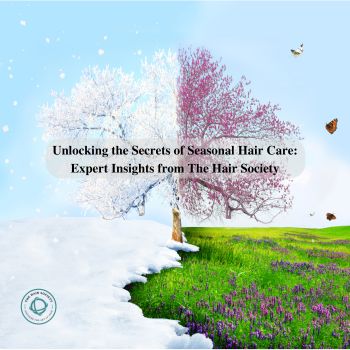Why do the ingredients matter? Washing your hair exposes the scalp and follicle to chemical change and potentially damaging additives. You must understand what you’re putting on your head to reap the benefits. Routine washing will remove any dirt and excess oils you’ve accumulated throughout the day. But you could be making matters worse by using the wrong shampoo. Understanding how ingredients affect the scalp can change your appearance dramatically. A quality hair care product will maintain a balanced pH, limit harmful chemical exposure, and protect your hair from damage.

Balancing pH
Maintaining a balanced pH is crucial to hair health, retention, and growth. It is essential to be aware of hair products’ pH and know how to use them properly. PH is the measurement of acidity on a scale from 0-14. Solutions with a pH from 1-6 are considered acidic. Solutions with a pH of 7 are neutral, and anything greater than 7 is considered alkaline.
The sebaceous glands underneath the skin produce sebum to maintain a healthy pH naturally. The oily sebum is naturally acidic. This acidic pH on the scalp and hair prevents the growth of bacteria and fungus. When the hair follicle is in the sebum’s naturally acidic environment, the cuticle remains closed and protected. When water makes contact with the scalp and hair, the hair cuticle opens. Water has a pH of 7 and is neutral—the overall pH changes when water, shampoo, and sebum interact. This mixture creates a new balance of acidity on the scalp. Each use of a hair product must return the scalp to its natural pH balance of 4-5.
Harmful Chemicals
Some harmful chemicals found in shampoos and conditioners are sulfates and parabens. Products list sulfate compounds in a variety of ways. The most commonly used sulfates in hair products are sodium laureth sulfate and sodium lauryl sulfate. These harsh cleaning chemicals are great for stripping the scalp of dirt and oil, but over time the use of sulfates can dry and weaken hair strands. Sulfates remove some of the good oil necessary for moisture retention and elasticity. Those with sensitive skin or scalp conditions may experience increased irritation and dryness when exposed to sulfates.
Parabens are artificial preservatives found in many cosmetic products. Once absorbed through the skin’s pores, parabens can disrupt hormone levels. Parabens inhibit the growth of microbes like bacteria and fungus, thus extending the shelf life of a product. The biodegradable nature of hair care solutions creates a need for antimicrobial preservation. You wouldn’t want to purchase a bottle of moldy or contaminated shampoo. Look for products that include natural preservatives like rosemary oil, vitamin E, jojoba oil, berry extracts, and tree oils. Replacing parabens with plant extracts protects your body from harmful chemical absorption and encourages a healthy pH balance since many plant oils are naturally acidic. Jojoba oil, for instance, has a pH that matches the scalp’s ideal 4.5-5 acidity.
A Nourishing Wash
 While vitamin intake and a clean diet can nourish hair internally, the hair care products we use externally can nourish the hair strands through absorption. Water opens the hair cuticle with its neutral pH level. With the cuticle open, the inner cortex of the hair strand can easily absorb the nutrients. What is the cortex? The cortex is the thick keratin-filled part of a hair strand located underneath the cuticle layer. A quality hair product should contain protein extracts or amino acids. These enzymes bind to the cortex, support moisture retention, and protect the strands from environmental damage. As the cuticle softens and becomes smooth, hair will appear fuller and healthier.
While vitamin intake and a clean diet can nourish hair internally, the hair care products we use externally can nourish the hair strands through absorption. Water opens the hair cuticle with its neutral pH level. With the cuticle open, the inner cortex of the hair strand can easily absorb the nutrients. What is the cortex? The cortex is the thick keratin-filled part of a hair strand located underneath the cuticle layer. A quality hair product should contain protein extracts or amino acids. These enzymes bind to the cortex, support moisture retention, and protect the strands from environmental damage. As the cuticle softens and becomes smooth, hair will appear fuller and healthier.
Your shampoo ingredients matter. Your wash routine should keep the scalp’s pH balanced, be free from harmful chemicals, and should provide necessary nutrients to the hair follicles. Always be mindful of the ingredients in your hair care products. If you don’t address each of these three areas, your scalp is susceptible to damage and potential hair loss. Finding the right shampoo and conditioner for your specific needs can be challenging. Consult a hair professional to address concerns and goals for the health of your hair.
References
https://www.healthline.com/health/shampoo-ingredients-for-different-hair-needs
https://www.thoughtco.com/how-shampoo-works-607853
https://www.shazandkiks.com/blogs/read/why-balancing-your-skin-and-hairs-ph-is-so-important




